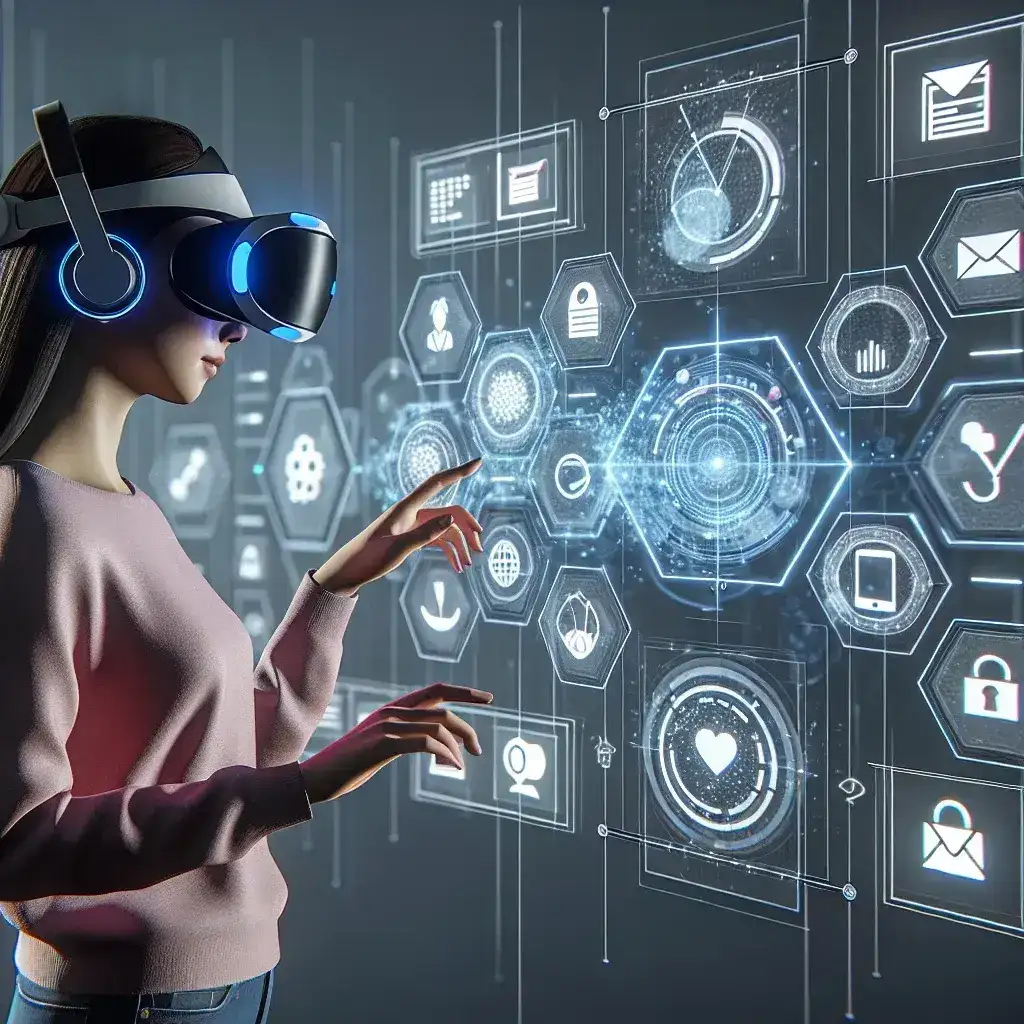Meta Introduces VR “Focus Zones” for Productivity Apps

Introduction to Meta’s VR Focus Zones
In an era where remote work and digital collaboration are becoming the norm, Meta has unveiled an innovative feature that aims to enhance productivity for users engaged in virtual reality (VR) applications. Known as “focus zones,” these areas are designed to create optimal conditions for concentration and efficiency in various productivity apps.
The Concept Behind Focus Zones
Meta’s focus zones are dedicated virtual spaces where users can immerse themselves in their work without distractions. By limiting visual and auditory interruptions, these zones encourage deeper engagement and facilitate a more streamlined workflow. This concept draws on research suggesting that minimizing distractions can significantly enhance productivity.
Understanding the Technology
Meta’s VR focus zones utilize advanced technology to create immersive environments that support a range of productivity tasks. Users can employ tools and applications tailored to their specific needs while enjoying a serene virtual backdrop.
Key Features of Focus Zones
- Customizable Environments: Users can select the ambiance that best suits their work style, whether it’s a quiet library, a serene beach, or a futuristic office.
- Integrated Tools: Productivity apps integrated into these zones allow users to collaborate with teams, manage tasks, and communicate effortlessly.
- Distraction Minimization: The design of the zones aims to block out external stimuli, keeping users focused on their tasks.
Historical Context of VR in Productivity
The evolution of virtual reality technology has been remarkable over the past few decades. Initially regarded as a novelty, VR has transitioned into a powerful tool for various sectors, including education, healthcare, and now, productivity. Companies have begun to recognize the potential of VR in fostering collaboration and enhancing work environments.
Past Innovations Leading to Focus Zones
Meta’s focus zones are the culmination of years of research and development. Previous iterations of VR workspaces offered users limited functionality. However, with continuous advancements in VR technology, including improved graphics and more intuitive user interfaces, the potential for VR in productivity has grown exponentially.
Potential Impacts on Productivity
The introduction of VR focus zones could revolutionize the way individuals approach work. By creating an immersive environment tailored to productivity, users might experience:
- Increased Focus: The elimination of distractions in focus zones allows users to delve deeper into their tasks.
- Enhanced Collaboration: Integrated tools facilitate seamless communication between team members, regardless of their physical locations.
- Improved Mental Well-being: By creating a more enjoyable work atmosphere, users may find increased job satisfaction.
Expert Insights
To understand the significance of VR focus zones, we sought insights from experts in the field. Dr. Emily Zhang, a psychologist specializing in workplace productivity, states, “The ability to create a customized work environment in VR can significantly affect an individual’s focus and productivity levels. Tailoring the workspace to suit personal preferences is a game-changer.”
Pros and Cons of VR Focus Zones
As with any new technology, there are pros and cons associated with Meta’s focus zones.
Pros:
- Enhanced concentration and productivity.
- Ability to tailor the work environment.
- Seamless collaboration with integrated tools.
Cons:
- Potential for VR fatigue or discomfort during prolonged use.
- Dependence on technology, which may hinder traditional working methods.
Future Predictions for VR in Productivity
As Meta continues to refine its focus zones, the future for VR in productivity looks promising. Experts predict that:
- We may see an increase in organizations adopting VR technologies for remote work.
- Focus zones could evolve to incorporate AI, providing personalized recommendations based on work habits.
- Collaboration in VR could become standard practice, leading to more innovative and effective teamwork.
Personal Anecdotes and Real-World Applications
Numerous companies have already begun implementing VR solutions to improve productivity. For instance, a tech startup in Silicon Valley adopted VR focus zones for their remote teams. The results were striking: a reported 30% increase in project completion times and higher employee satisfaction rates.
Cultural Relevance
The rise of remote work has transformed workplace culture. With more employees working from home, the need for effective productivity solutions has never been greater. Meta’s focus zones align perfectly with the current trend of creating flexible, engaging work environments.
Conclusion
Meta’s introduction of VR focus zones for productivity apps marks a significant step forward in how we approach work in the digital age. By harnessing the power of virtual reality, Meta is not only enhancing productivity but also redefining the modern work experience. As we look ahead, these innovations could shape the future of work, making it more immersive, efficient, and enjoyable.
Leave a Reply